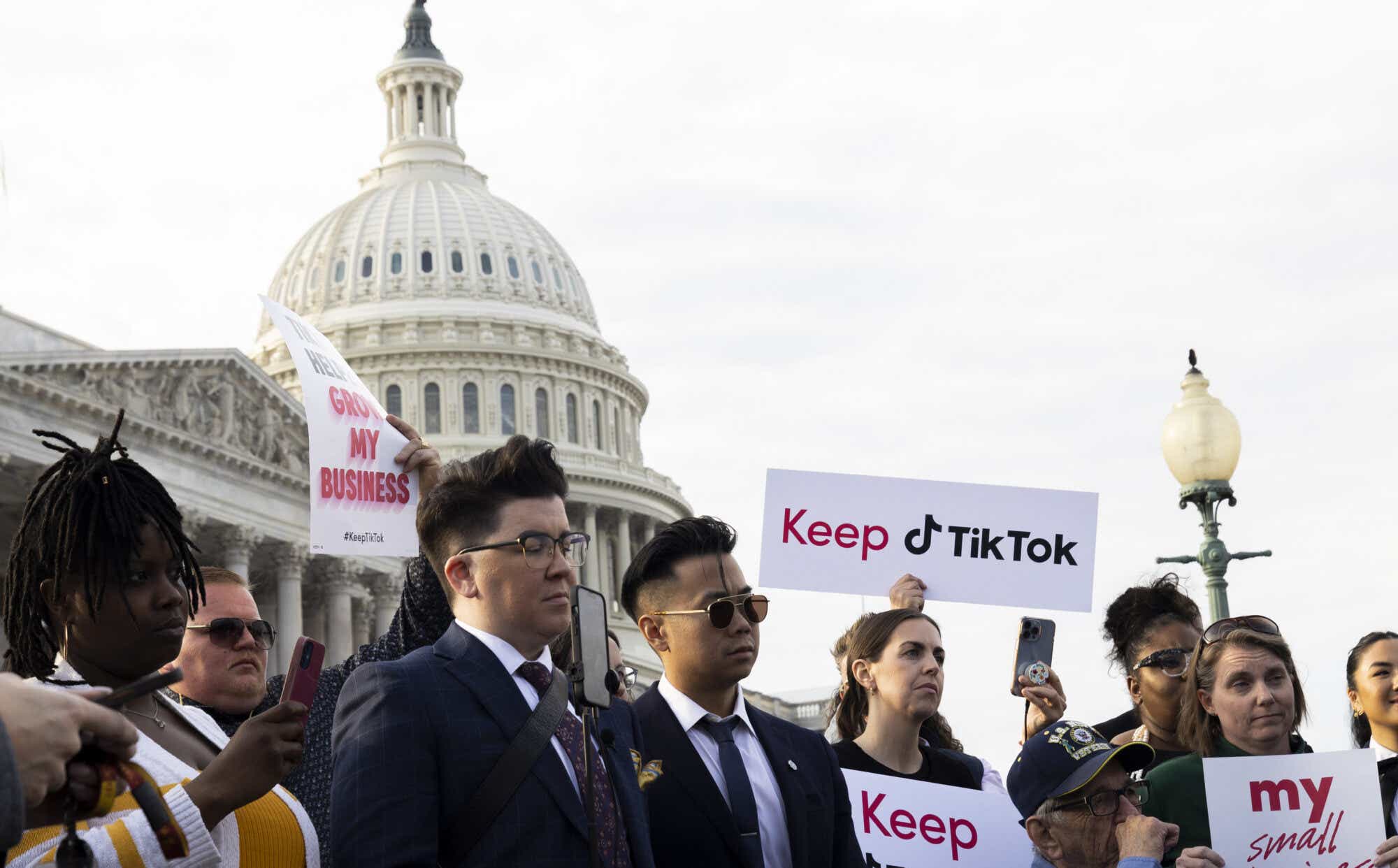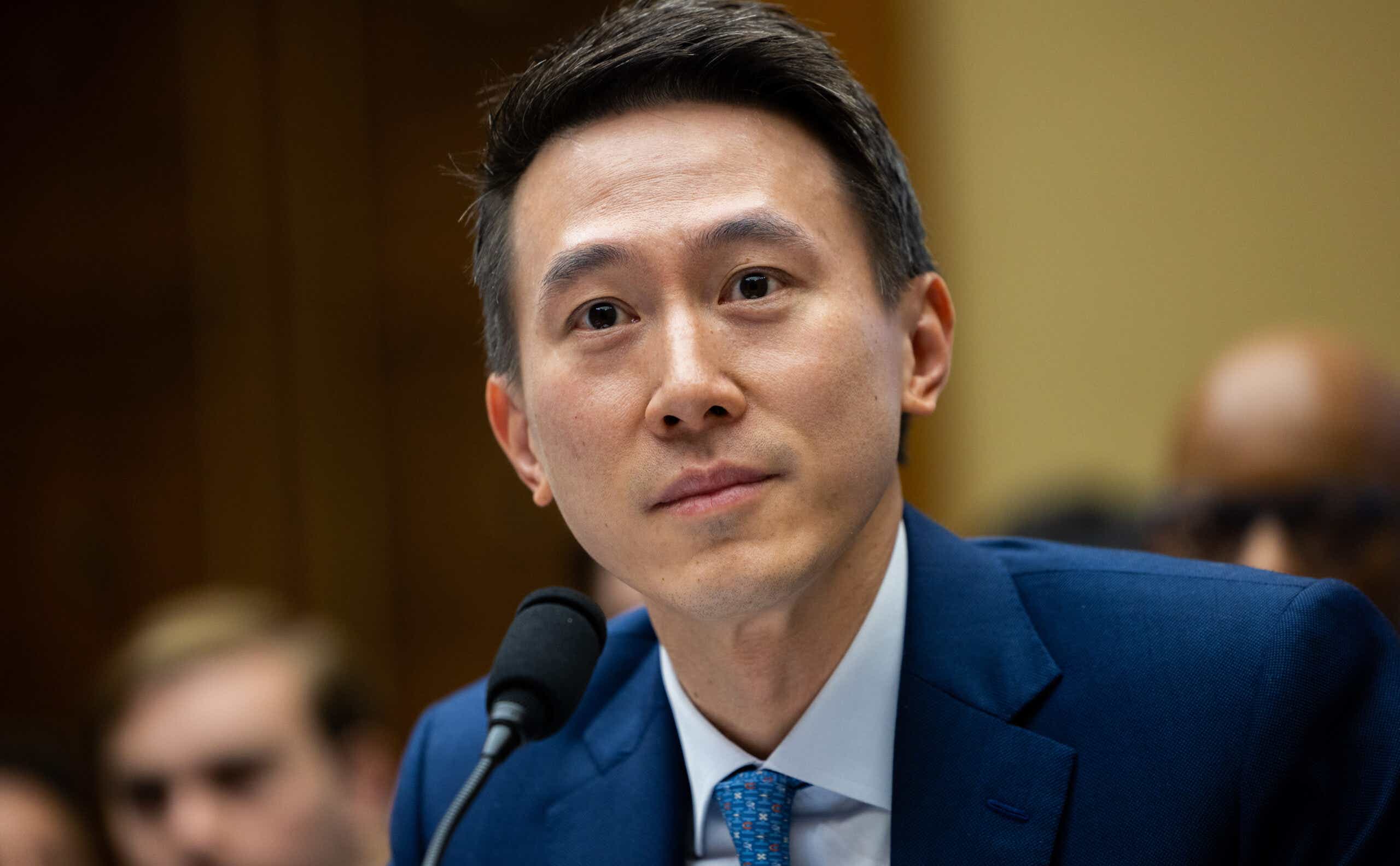CEO Shou Zi Chew must’ve had whiplash from ducking so many questions.
TikTok CEO Shou Zi Chew repeatedly dodged yes and no questions during yesterday’s grilling before the House Energy and Commerce Committee. Members weren’t convinced by his assurances on the safety of users’ data, nor his replies regarding the app’s ties to China — and when Chew did try to speak, it was often difficult for him to get a word in.
Committee Chair Rep. Cathy McMorris Rodgers said TikTok keeps choosing “a path for more control, more surveillance, and more manipulation,” adding: “Your platform should be banned.”
We get into the weeds, below.
What was the hearing about?
Washington has grappled with how to rein in Americans’ use of the app for years thanks to fears that Beijing could use it to sway public opinion, or access personal data. It’s already forbidden on U.S. government devices, and TikTok and its Chinese owner ByteDance are under investigation by the FBI and Justice Dept. over spying allegations. Now, lawmakers from both sides of the aisle want to forbid its use in America — and President Biden is backing either an outright ban, or for the U.S. part of the company to be sold to a domestic buyer.
TikTok CEO Shou Zi Chew came to town to tell Congress that the app is safe, and that banning it would hurt countless small businesses and silence “the voices of over 150 million Americans.” Creators gathered in the Capitol this week to protest the potential ban, which they say would destroy both livelihoods and essential online communities.

The data protection issue
One of the key bones of contention from the U.S. point of view is TikTok’s capacity to harvest American users’ data. During the hearing, Rodgers said it should be banned on the basis of these security concerns, calling the app a weapon of the Chinese Communist Party that doesn’t gel with U.S. values.
Rep. Frank Pallone, D-N.J. repeatedly pressed Chew over whether TikTok sells data.
“You say you’re benign, you want to do good things for the public, so let me ask you,” he said. “What about a commitment that says you won’t sell the data that you collect. Would you commit to that? Not selling the data you collect?”
Chew replied that TikTok doesn’t sell data to “any data broker.” Pallone asked Chew to clarify whether the app sells data to anyone, and Chew said he’d have to get back to the committee on that.
Again and again, Chew tried to distance TikTok from ByteDance, its China-owned parent company, and even took a jab at American tech franchises.
“I think we need to address the problem of privacy,” he said, continuing: “With all due respect, American companies don’t have a great track record with data. Just look at Facebook and Cambridge Analytica.”
What’s Project Texas?
One of Chew’s main assurances to the committee was TikTok’s future plan to ensure the security of U.S. data via “Project Texas.”
The idea would be to store U.S. user data in America, in partnership with Texas-based computer technology corporation Oracle. The U.S. government would be able to monitor what was going on, and TikTok hopes it will assert the company’s independence from the Chinese government.
Californian Congressman Jay Obernolte, who’s also a software engineer, expressed concerns that Project Texas is too ambitious.
He told the hearing: “I am concerned that what you’re proposing with Project Texas just doesn’t have the technical capability of providing us the assurances that we need.”
Ducking and diving
Chew repeatedly avoided giving clear answers during the hearing, which evidently left lawmakers frustrated.
“I think quite frankly your testimony has raised more questions for me than answers,” Rep. Lisa Blunt Rochester, D-Del., told Chew.
What about kids on the app?
Rep. Buddy Carter noted research indicating that TikTok is the most addictive app on the market, raising fears about its impact on children.
“There are those on this committee including myself who believe that the Chinese Communist Party is engaged in psychological warfare through TikTok to deliberately influence U.S. children,” he said.
Chew said that he “wasn’t sure” whether the app struggled to cope with content that could be harmful to kids. Rep. Brett Guthrie said that despite the app’s terms of service, which forbid the depiction and promotion of illegal drugs, such content is pervasive, highlighting the Benadryl challenge which claimed the life of a 15-year-old girl in Oklahoma.
Congresswoman Angie Craig said that the platform had done little to halt posts promoting illicit drugs, asking: “What are you doing to move past these token efforts to stop teenagers accessing drugs?”
Chew said that the company took all this “very seriously.”
“We will continue to work on it,” he said. “No company is perfect.”
Rep. Gus Bilirakis shared the story of Chase Nasca, a 16-year-old boy who took his own life last year after receiving more than 1000 unsolicited TikTok videos of violence and suicide.
“I want to thank his parents for being here today, and allowing us to show this,” Bilirakis said. “Mr Chew, your company destroyed their lives.”
Chew said that TikTok had taken care to learn from other social media companies when it comes to child safety. “We spend a lot of time adopting measures to protect teenagers,” he said. “Many of these measures are firsts for the social media industry — we forbid direct messaging for people under 16 and we have a 60-minute watch time by default for those under 18.”
“Republicans [and] Democrats agreed this is a threat,” Gallagher, the chair of the House Select Committee on China, later told CNN. “So we can’t ignore it just because of concerns about alienating some teenagers on this app.”








